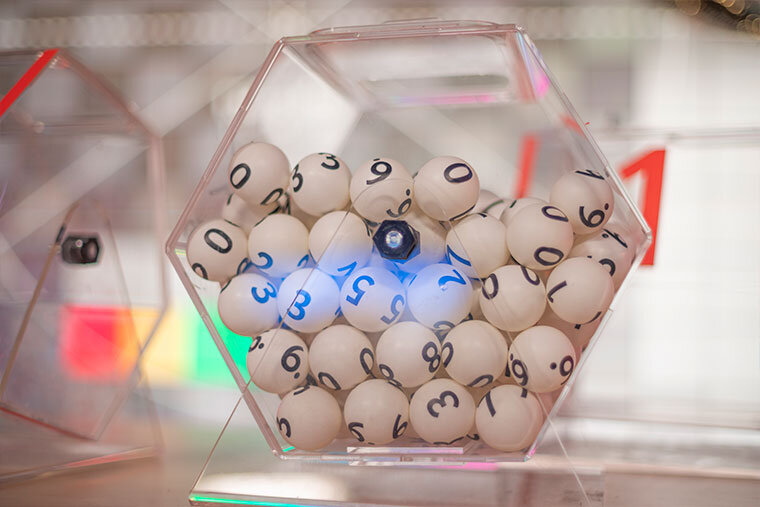Exploding the most common myths about the lottery
From the existence of lottery patterns to the odds of being struck by lightning first: In this post, we'll unravel the reality behind these myths.
The lottery, with its promise of big winnings and the thrilling suspense that comes with it, has become a worldwide phenomenon. Over the years, this popular game has spawned a number of myths and superstitions that have intrigued both regular and casual players. From beliefs about lucky numbers to supposedly foolproof strategies for winning, these ideas permeate popular psychology about the lottery.
But how much of this is true? Can we really increase our chances of winning if we always play the same numbers or if we play every day? Am I more likely to be struck by lightning before I win the lottery?
In this post, we set out to unravel the reality behind these common myths. With a fact- and statistically-based approach, we will dismantle the most deeply held beliefs and reveal the truth about the lottery, to provide a more informed and realistic view of the game. After all, a clear understanding of how the lottery really works can help you make more conscious gambling decisions and, who knows, even enjoy the process more.
So, without further ado, let's dive into the fascinating world of lottery myths and find out what's really behind them.
If I always play the same numbers I will win the lottery at some point.
Have you ever thought that if you always play the same numbers, you will eventually win the lottery? This is a fairly common myth and has been the strategy of many players. They stick to a specific number combination, either because of significant dates, special events or simply because they like the way they look. However, it is important to understand how the lottery drawing actually works.
In every drawing, all numbers have exactly the same chance of being selected. Every number in the lottery hype has the same probability of being chosen, regardless of how many times it has been selected before. The lottery has no memory. It doesn't matter if your favorite number was selected in the last drawing or if it hasn't come up in years, the odds of it appearing in the next drawing are the same as for any other number.
No matter how many times you have played the same numbers, your chances of winning remain the same. That's right, no matter how many times you repeat your favorite numbers week after week, this will not give you more chances of winning. This is a fundamental aspect of gambling: the independence of events. Each draw is an independent event, and previous results do not influence future ones.
So what does this mean for your lottery strategy? Well, there's nothing wrong with always playing the same numbers if it makes you happy. But don't fool yourself into thinking that this will increase your chances of winning. Pick your numbers for fun, for personal significance or at random, but remember that every draw is a new opportunity with the same odds of winning, no matter what has come before.

If I play every day I will increase my chances of winning.
The second common myth we often hear is that playing every day increases the chances of winning the lottery. It is easy to understand why this concept may seem logical at first glance. In many aspects of life, practice and consistency improve our skills and results. In sports, at work, even in personal relationships, repetition and dedication are often rewarded. But does this apply to the lottery
The short answer is no. The reality is that you can play for a lifetime without ever winning, and you can also play just once and walk away with a prize. This is due to the random nature of lottery drawings.
It's a bit of a counterintuitive concept, but it's true: your chances of winning are independent of how often you play. Playing more often does not improve your odds of winning. Every time you play, you are entering a new drawing with the same odds of winning. It doesn't matter if it's your first ticket or your thousandth.
This doesn't mean you shouldn't play regularly if you enjoy the game. Participating in every draw will allow you to always be in the running for the big prize. In addition, what can happen is that your frequent numbers may be drawn in a draw that you have not participated in, so this possibility encourages many players to always participate on a regular basis.
Analyzing the numbers that have won before can help me predict the next draw.
Let's address one belief that is particularly interesting: the idea that you can predict the next draw by analyzing the numbers that have come up previously. It's a theory that many lottery players embrace; they engage in a close study of previous numbers in the hope of deciphering some hidden pattern.
However, the reality is a bit more complex. Yes, it is true that some numbers may appear more frequently in the draws, but that does not guarantee that they will be repeated in the short term or that they will appear in the next draw. Each lottery drawing is independent of the others. This means that the odds of each number being selected are the same in each drawing, regardless of how many times it has appeared in previous drawings.
The lottery, like many other games of chance, operates on the basis of long-term statistics. Trying to predict the outcome of a specific drawing based solely on past results is like trying to predict the outcome of a coin toss based on previous tosses. No matter how many times it has come up heads, the odds of it coming up tails on the next toss will always be the same.
Therefore, while the strategy of analyzing past numbers and looking for patterns can be an entertaining way to interact with the game, it should not be considered a surefire method of winning. Play for fun, not for the illusion of having control over chance!

It is impossible to be sure of the randomness of the results.
It is natural and understandable that lottery players, especially those with a string of consecutive losses, may come to question the randomness of the draws. Some may even suspect a biased or manipulated system. However, this idea is more myth than reality.
All official lotteries are subject to rigorous audits to ensure their integrity and transparency. These audits cover all aspects of the lottery, from ticket sales to the conduct of the draw itself. But how is the randomness of the draws actually guaranteed?
Random Number Generators (RNGs)
Official lotteries use a technology known as Random Number Generators, or RNGs for short. These RNGs are sophisticated algorithms that produce sequences of numbers that exhibit no predictable pattern. The numbers generated by these systems are as random as the results of flipping a coin or rolling a die. In fact, the randomness of RNGs is such that not even the lottery operator can predict what the next number generated will be
In addition, to add an extra layer of security, the RNGs are regularly reviewed and certified by independent laboratories. These labs perform statistical and analytical tests to ensure that the RNGs produce truly random results and are not manipulated in any way.
Therefore, you can be confident that the lottery drawings are truly random and fair.

I'm more likely to be struck by lightning than to win the lottery.
That's right, the phrase "There's more chance of getting struck by lightning than winning the lottery" has become commonly accepted. This saying, often used to describe the unlikely odds of winning the lottery jackpot, has become ingrained in the popular mindset. However, it is essential to note that, although colorful, this myth does not reflect the mathematical truth.
The man responsible for disproving this belief was Ed Stanek, Iowa Lottery Commissioner and a physicist by profession. Stanek, with his solid knowledge of numbers and statistics, decided to put this myth to the test. Surprisingly, in an October 1997 issue of Public Gaming International magazine, he demonstrated that while the odds of winning the lottery are low, they are not as extreme as being struck by lightning.
In fact, the probability of winning depends on the type of lottery game played and the total number of possible combinations. For example, in some lottery drawings, the odds of winning can be as low as one in tens of millions. However, these are even greater than the odds of being struck by lightning, which according to the U.S. National Weather Service, is about one in 700,000 in any given year. While in a single year in the U.S. 1,136 people won more than $1 million and another 4,520 won more than $100,000, only 91 people were struck by lightning.
Playing the lottery is only good for winning the first prize.
The glitz and glamour of the big lottery jackpot can be blinding. Many people focus solely on the millions that could change their life overnight. However, you should not forget that there is more at stake than the coveted first prize.
It's true that winning the lottery jackpot is a dream shared by many. But did you know that lotteries also offer secondary prizes that are considerably easier to hit? These prizes might not make you a multi-millionaire, but they still often have very nice rewards for their winners. A secondary prize can be enough to pay for a luxury vacation, get rid of some debt or make a significant investment.
Therefore, don't rule out the possibility of winning in the different prize categories. When you buy a lottery ticket, you are not only playing for the first prize, but also for a series of secondary prizes that could result in considerable winnings. For example, if you won a small prize every week or every month, how much would you have accumulated after a year?
Conclusion
Throughout this blog, we have challenged and debunked several common lottery myths. From the mistaken belief that always playing the same numbers or playing every day will increase your chances of winning, to the idea that analyzing patterns from past draws will help you predict the next winning draw. We have shown that these are just that, myths, which can lead to unrealistic expectations and poor gambling decisions.
In addition, we have highlighted the importance of understanding that playing the lottery is not just about trying to win the jackpot. There are secondary prizes that, while they may not make you a millionaire, can still offer substantial rewards. And, most importantly, we have emphasized that each ticket offers the opportunity to win in multiple prize categories.
We hope this post has provided you with a more informed perspective on the lottery. Hopefully, you will now be able to approach the game with a better understanding, avoiding falling into the traps of superstitions and false beliefs. In doing so, you will be able to enjoy the game more and, who knows, you may even get lucky in a drawing.
To conclude, we want to remind you that, at the end of the day, the lottery is a game and, as such, it should be fun. Don't let the pressure to win get to you, and don't let myths and false beliefs get to you. Play responsibly, enjoy the process and remember that even though the odds may seem small, someone has to win.





